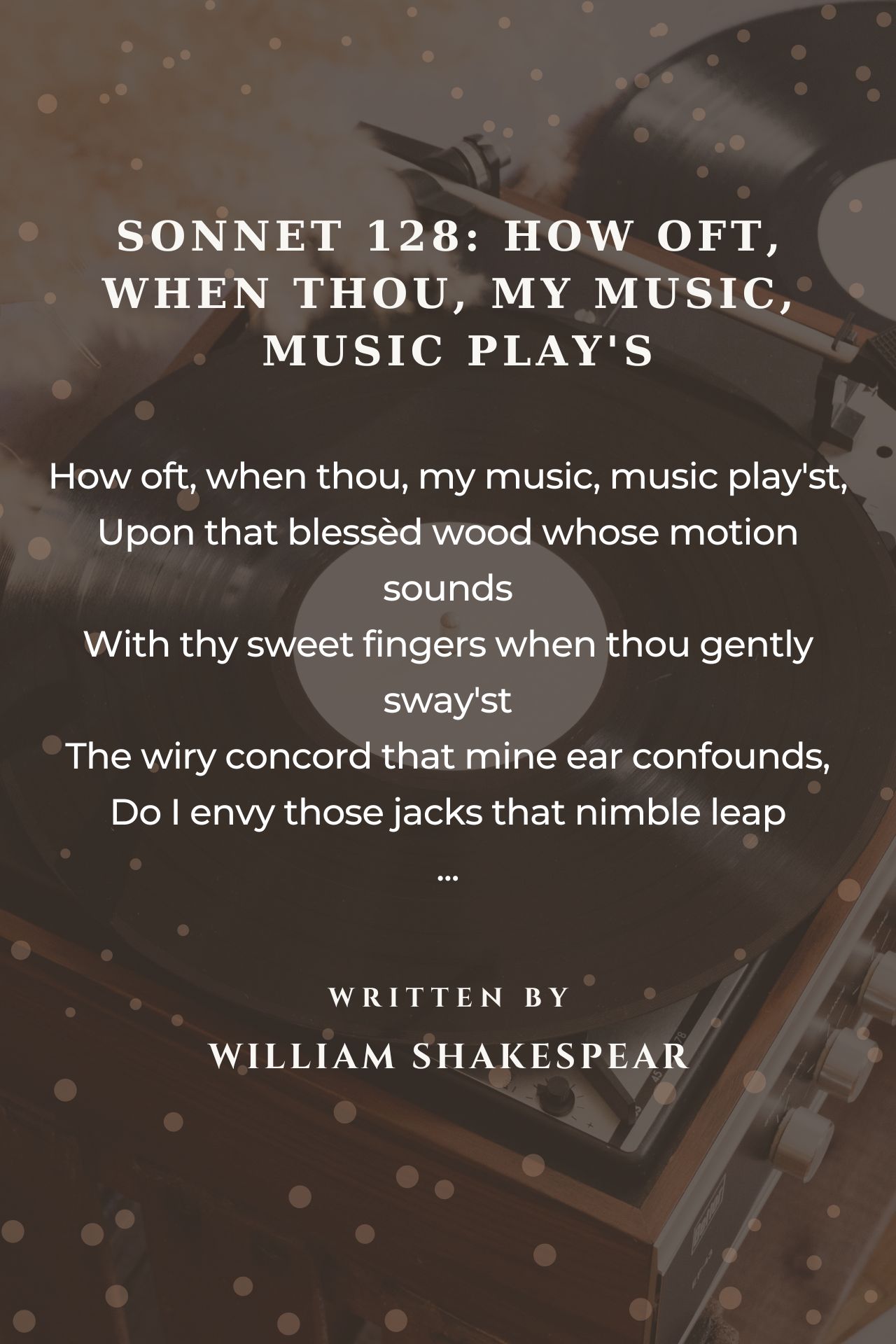Sonnet 128: How Oft, When Thou, My Music, Music Play'st Poem by William Shakespeare
Sonnet 128: How Oft, When Thou, My Music, Music Play'st
How oft, when thou, my music, music play'st,
Upon that blessèd wood whose motion sounds
With thy sweet fingers when thou gently sway'st
The wiry concord that mine ear confounds,
Do I envy those jacks that nimble leap
To kiss the tender inward of thy hand,
Whilst my poor lips, which should that harvest reap,
At the wood's boldness by thee blushing stand!
To be so tickled, they would change their state
And situation with those dancing chips
O'er whom thy fingers walk with gentle gait,
Making dead wood more blest than living lips.
Since saucy jacks so happy are in this,
Give them thy fingers, me thy lips to kiss.

The poet turns to the elaborate conceits that other sonneteers were accustomed to use as expressions of their desire for closer intimacy with the beloved. They would wish to be a glove which embraced her hand, a hat, a handkerchief, a glass, a lap dog, or, in the case of Barnabe Barnes, in the sonnet sequence Parthenophil and Parthenophe, the wine which his mistress drinks, which gradually works through her body and makes its way out 'by Pleasure's part'. In 'As You Like It', Touchstone the clown remembers how, when in love, he kissed the wooden washing paddle and the cows' teats that his mistress had touched: '' I remember, when I was in love I broke my sword upon a stone and bid him take that for coming a-night to Jane Smile; and I remember the kissing of her batlet and the cow's dugs that her pretty chopt hands had milked '' - AYL.II.4.44-8. ...
... But however light hearted we might think this sonnet to be, we have to see it in its setting, and remember that it is followed by a sonnet of the most profound sexual pessimism. Perhaps the contrast is deliberate, and it may be that Shakespeare wished to portray the whole range of emotion he experienced, from the heights to the depths. For this brief interlude, there is a ray of sunshine, and the poet takes pleasure in seeing his mistress playing. But the pleasure is not entirely unalloyed, for it is mixed with unfulfilled longings, and a jealousy that suspects that her favours are being too liberally bestowed on others.
Nice piece of work. Thanks for sharing this poem with us. E.K.L.
This poem has not been translated into any other language yet.
I would like to translate this poem
Awesome I like this poem, check mine out